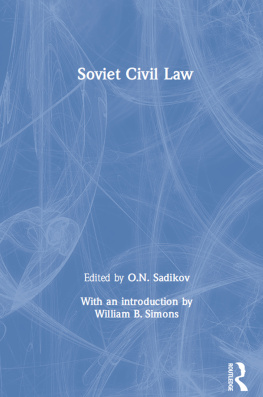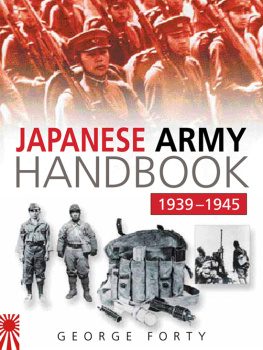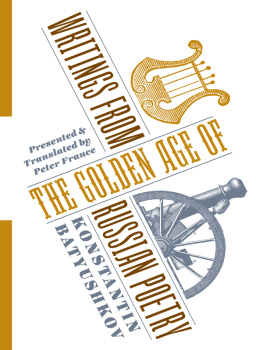THE RUSSIAN ARMY AND
THE JAPANESE WAR,
BEING HISTORICAL AND CRITICAL COMMENTS ON
THE MILITARY POLICY AND POWER OF RUSSIA
AND ON THE CAMPAIGN IN THE FAR EAST,
BY GENERAL KUROPATKIN.
TRANSLATED BY
CAPTAIN A. B. LINDSAY,
2ND KING EDWARDS OWN GURKHA RIFLES
TRANSLATOR OF THE BATTLE OF TSU-SHIMA; THE TRUTH ABOUT PORT ARTHUR, ETC.
EDITED BY
MAJOR E. D. SWINTON, D.S.O., R.E.,
AUTHOR OF THE DEFENCE OF DUFFERS DRIFT;
AND EDITOR OF THE TRUTH ABOUT PORT ARTHUR.
WITH MAPS AND ILLUSTRATIONS
IN TWO VOLUMES: VOL. I.
NEW YORK
E. P. DUTTON AND COMPANY
1909
TRANSLATORS PREFACE
The General stands higher than any other Russian officer, not only in Russian opinion, but in that of professional soldiers all the world over, and if any human agency can change the deplorable situation to Russias advantage, Kuropatkin may be the man to do it. This sentence, written by the military correspondent of the Times in February, 1904, well expresses the sentiment that predominated when General Kuropatkins appointment to command the Russian army in Manchuria was announced.
It may be that a military genius would have overcome the moral and physical difficulties we had to encounter. Possibly; but an Alexeieff, a Kuropatkin, a Linievitch, a Grippenberg, a Kaulbars, and a Bilderling were unable to do so, were the words used by the General himself two years later when reporting to his Sovereign.
Though these two quotations epitomize the raison dtre and tendency of this book, they by no means afford a complete description of its scope. Were it nothing but an apologia, not even the former reputation and position of its author would save it from the neglect which invariably awaits the excuses of the man who has failed. But it is no mere apologia. For, apart from its tone of disappointment, apart from the dominant note of failure which is current throughout, and the explanations and reasons repeated on almost every page, the work is one long-continued protest. It is a protest from first to last that the war was notas far as Russia was concernedfought to anything like a finish; that it was brought to a premature conclusion; that peace was declared at the moment when victory lay within Russias grasp, when her strength was at its greatest, and that of her enemy had begun to ebb. Whether true or otherwise, this view should not be rejected without consideration as the natural cry of an unsuccessful party. These pages give food for thought; they, moreover, contain much that has hitherto rested in obscurity with regard to the attitude of the Russian War Ministry, its efforts to prevent the war, its general policy, and other matters.
The author endeavours to drive home his protest by marshalling an array of facts, and by analogy from the military history of his country for more than two centuries. Whether he proves his case is for the reader to judge. Be that as it may, his book must claim attention as being the absolute opinion of the one man on the Russian side best qualified to throw light upon the causes and course of the greatest world-disturbing international struggle that has taken place for more than a third of a century. It has also a sentimental interest in that it is the utterance of one who, after a long and meritorious career in his countrys service, and after holding the highest appointments his profession offered, has failed and retired discredited into the depths of the country. Whether he will reappear in public life or not is unknown; but when his distinguished services for Russia are called to mind, and a few of the stupendous difficulties with which he had to contend in this last campaign are realized, it is impossible to withhold sympathy.
The son of a Russian provincial official, Alexei Nicolaevitch Kuropatkin was born on March 17, 1845. After being educated in the cadet corps and the Pavlovsk War School, he was, at the age of eighteen, posted as a Lieutenant to the 1st Turkestan Rifle Battalion, with which he saw active service in Central Asia. Having passed with success through the Staff College, and being graded as Staff Captain, he in 1874 accompanied a French expedition into the Sahara. In 1876 he took part in the Central Asian Campaign of that year, being on Skobeleffs staff, winning many laurels, and being wounded. During the Turkish War of 187778 he was Chief of the Staff, and was again wounded. In the Akhal Tekhe Expedition of 188081 he once more distinguished himself, commanding the Turkestan Rifle Brigade, and being twice wounded at the storming of Geok-Tepe. From 188390 he was General in Charge of strategical questions on the great General Staff. In 1890 he reached the rank of Lieutenant-General, and from that year till 1898 did valuable service as Commander-in-Chief of the Trans-Caspian Military District. In 1898 he received his portfolio as Minister of War, which position he filled until February 20, 1904, when he was appointed Commander-in-Chief of the Manchurian Army of Operations (having been promoted to General of Infantry in 1900). On March 27, 1904, he reached Liao-yang to take up his duties, and after several battles, in which the Russians were almost invariably defeated, he was, in March, 1905, superseded in the chief command by General Linievitch. Henceforward he continued to serve on in a subordinate position in command of the 1st Army until the end of the war. After peace was concluded, he remained in Manchuria superintending the demobilization of the Russian forces, proceeding, on the completion of this duty, to his country seat in Russia, where he has since remained in retirement. It was during his stay in Manchuria, after hostilities had ceased, and later at his home, that he wrote this book, with the assistance acknowledged by him in the introduction. Its publication in Russia was suppressed almost as soon as the book appeared, and it is believed that the subject-matter of this translation was never printed in Russia. Of the four volumes of the original work, the fourth has alone been translated, and is now presented to the British public in these pages.
Among the many facts presented to us by the author there are some which call for special reference. The first point to claim our attention is the fact that though General Kuropatkin was Commander-in-Chief of an army engaged in active operations in the field, he was for a long time not supreme. Indeed, from the day he arrived at Liao-yang until October 25, 1904, he was subordinate to an officer not actually at the front, being appointed as assistant (the italics are ours) to the ViceroyAdmiral Alexeieffwhose headquarters were at Harbin. Curiously enough, General Kuropatkin says very little upon this subject. He merely points out that he was really in supreme command only for four and a half months of the warbetween Admiral Alexeieffs departure and his own supersession by General Linievitchand incidentally mentions various actions and orders of the Viceroy which forced him to act against his own judgment. How detrimental such control must have been to the conduct of operations needs no emphasis. It is not within the scope of this preface to attempt criticism or justification of the Russian strategy or conduct of the warbe it that of General Kuropatkin or anotherbut such a vicious system of command may account for much that has hitherto appeared inexplicable. Other points which stand out are: the absolute unreadiness of Russia, the causes which led her into hostilities in spite of this unreadiness, the overwhelming nature of the advantage gained by Japan with the command of the sea, the drag upon Russias strategy constituted by the fortress of Port Arthur, and the fear of complications on the western frontier, which forced her to retain her best troops in Europe. The handicap that her inferior railway communications were to her arms is obvious, and less remarkable than the immense improvement in them effected during the course of hostilities.




![Aleksei Sedunov - Kotlin In-Depth, [Vol. I]: A Comprehensive Guide to Modern Multi-Paradigm Language](/uploads/posts/book/319564/thumbs/aleksei-sedunov-kotlin-in-depth-vol-i-a.jpg)
![Aleksei Sedunov - Kotlin In-Depth, [Vol. II]: A Comprehensive Guide to Modern Multi-Paradigm Language](/uploads/posts/book/319561/thumbs/aleksei-sedunov-kotlin-in-depth-vol-ii-a.jpg)



